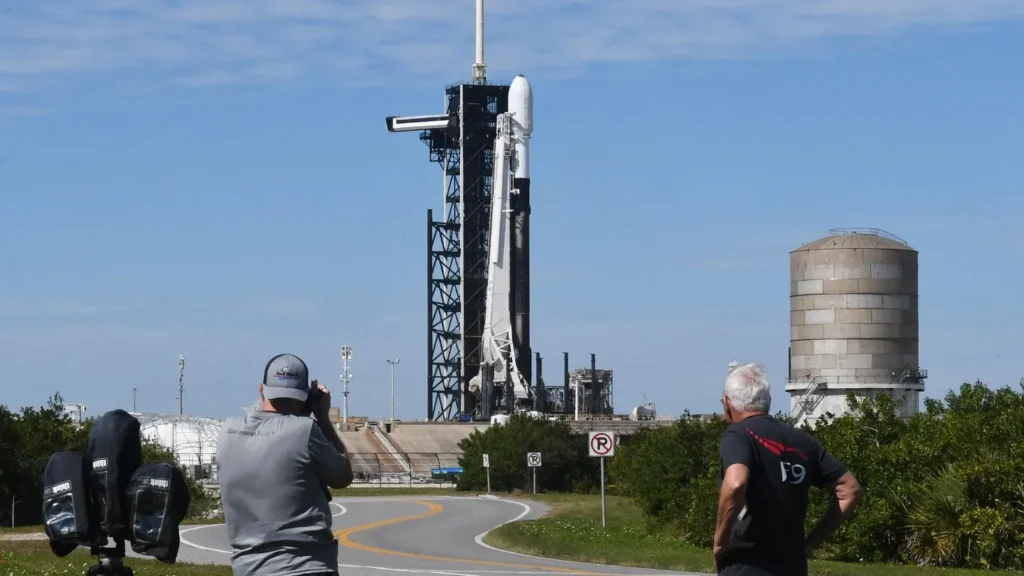SpaceX Postpones Launch of American Moon Lander, Odysseus, Due to Technical Hurdles
Late on Tuesday night, SpaceX announced the cancellation of the launch of the privately designed American moon lander, Odysseus, citing technical issues. This setback has temporarily derailed the latest attempt to place a U.S.-made spacecraft on the lunar surface for the first time in over 50 years.
Key Facts:
- SpaceX, responsible for launching the lander crafted by Houston-based Intuitive Machines using its Falcon 9 rocket, disclosed that the launch was halted due to the off-nominal temperature of the rocket’s methane fuel.
- The launch of the IM-1 mission was scheduled for just after midnight on Wednesday from NASA’s Kennedy Space Center in Florida.
- SpaceX has rescheduled the launch for 1:05 a.m. ET on Thursday.
News Peg:
- SpaceX’s Falcon 9 rocket is set to carry Intuitive Machines’ Nova-C moon lander, Odysseus, which aims for a more direct path to the moon. The landing attempt is anticipated later this month, carrying NASA’s sensors and instruments for which Intuitive Machines is reportedly receiving $118 million. Odysseus will also transport four commercial payloads, including sculptures supported by an NFT crypto project. The lander was expected to compete with Peregrine 1, another private lander by Astrobotic Technology. Peregrine 1 faced failure last month due to a fuel leak shortly after takeoff.
Key Background:
- If successful, Odysseus will mark the first American spacecraft landing on the lunar surface since the crewed Apollo-17 mission. NASA’s Artemis crewed mission to the moon, initially scheduled for later this year, has been delayed to September 2025. Odysseus’ launch coincides with renewed interest in lunar exploration, with several moon missions in the past year. India achieved success in August with its Chandrayaan-3 moonshot, becoming the fourth nation to land on the moon. Meanwhile, earlier attempts by a Japanese space firm and the Russian space agency faced setbacks. In January, the Japanese moon lander, Smart Lander for Investigating Moon (SLIM), successfully landed on the moon, marking the fifth country to achieve this milestone.

